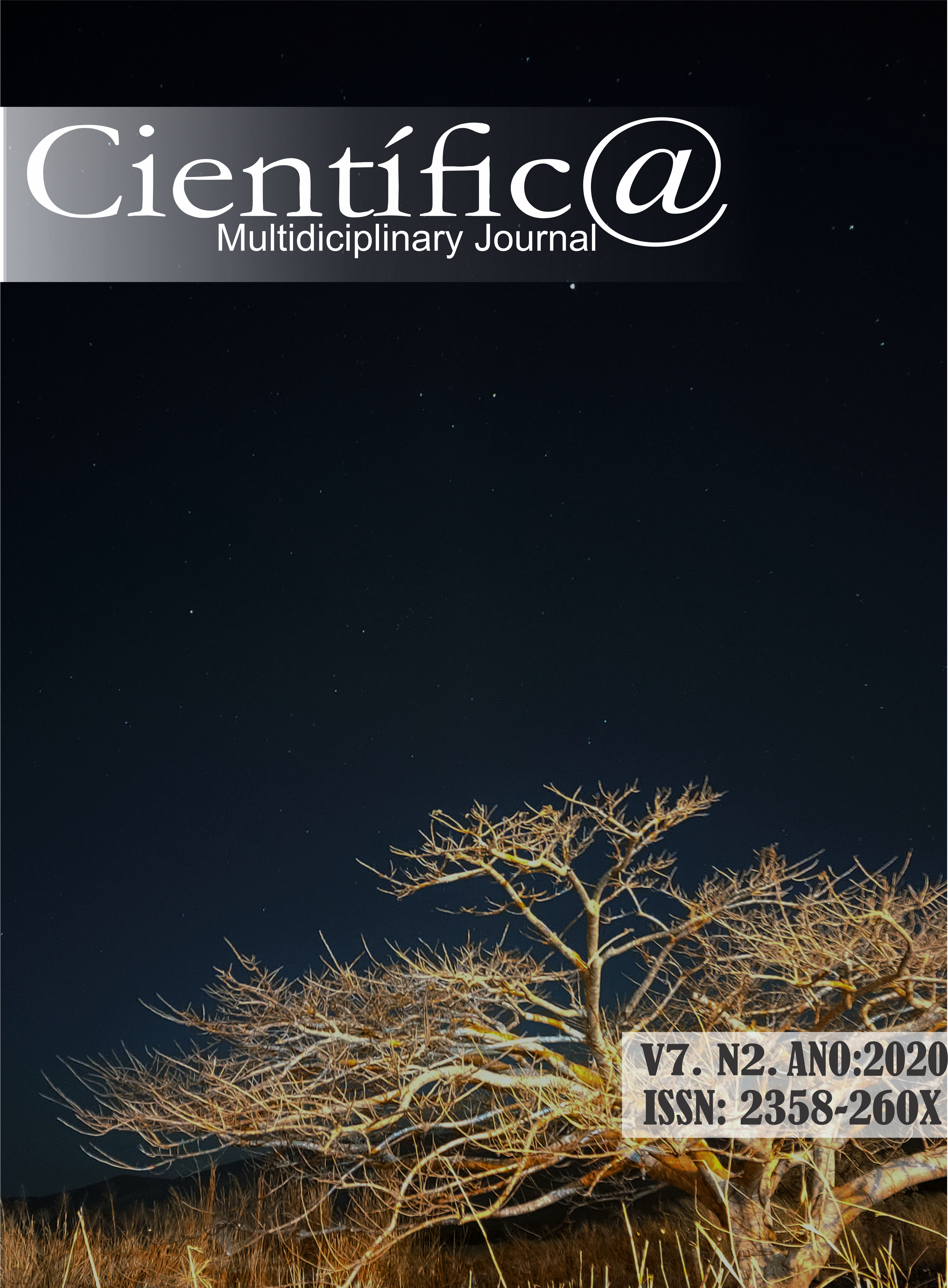PERSPECTIVA DE PERMANÊNCIA NO CAMPO - ESTUDO DOS JOVENS RURAIS DO ENSINO MÉDIO DE GOIANÉSIA/GOIÁS
DOI:
https://doi.org/10.37951/2358-260X.2020v7i2.4995Resumo
Nos próximos anos com a explosão demográfica global, a população mundial em 2050 deverá atingir o patamar de nove bilhões e meio de pessoas segundo a FAO (Organização das Nações Unidas para a Alimentação e a Agricultura). O Brasil tem uma vocação especial para a agropecuária, em razões das condições climáticas, disponibilidade de água e extensão territorial. É preciso antecipar e se preparar para a demanda de alimentos que virá, e com o esvaziamento do campo nas últimas décadas há a preocupação com a mão de obra no campo para os anos futuros. A presente pesquisa foi realizada com jovens rurais de 15 a 24 anos do ensino médio no município de Goianésia, estado de Goiás. Foram entrevistados 10 rapazes e 10 moças com um questionário de entrevista semiestruturadas, foram obtidas respostas as perguntas abertas e fechadas, onde se procurou saber se há ou não incentivo da família em seguir nas atividades agrícolas, quais fatores são favoráveis e desfavoráveis à permanência no campo, quais sonhos a anseios dos jovens para o futuro de suas vidas, dentre outras perguntas. Na pesquisa constatou-se que 70% dos rapazes que vivem na zona rural não pretendem seguir nas atividades agrícolas e o índice entre as mulheres foi ainda maior, 90%, o que evidenciou o processo de masculinização da zona rural. Ficou evidente ainda que a família na sua maioria não incentiva os jovens a permanecerem nas atividades do campo, ao contrário, os motivam a seguir uma profissão mais lucrativa e menos penosa do que o trabalho que é realizado no campo. Foi constatado que 30% dentre estes poderá seguir nas atividades se houver melhor renda e mais entretenimento e tecnologia no campo.
Downloads
Arquivos adicionais
Publicado
Como Citar
Edição
Seção
Licença
Esta revista oferece acesso livre imediato ao seu conteúdo, seguindo o princípio de que disponibilizar gratuitamente o conhecimento científico ao público proporciona maior democratização mundial do conhecimento.
A partir da publicação realizada na revista os autores possuem copyright e direitos de publicação de seus artigos sem restrições.
A Revista Científic@ - Multidisciplinary Journal segue os preceitos legais da licença Creative Commons - Atribuição-NãoComercial 4.0 Internacional. 

